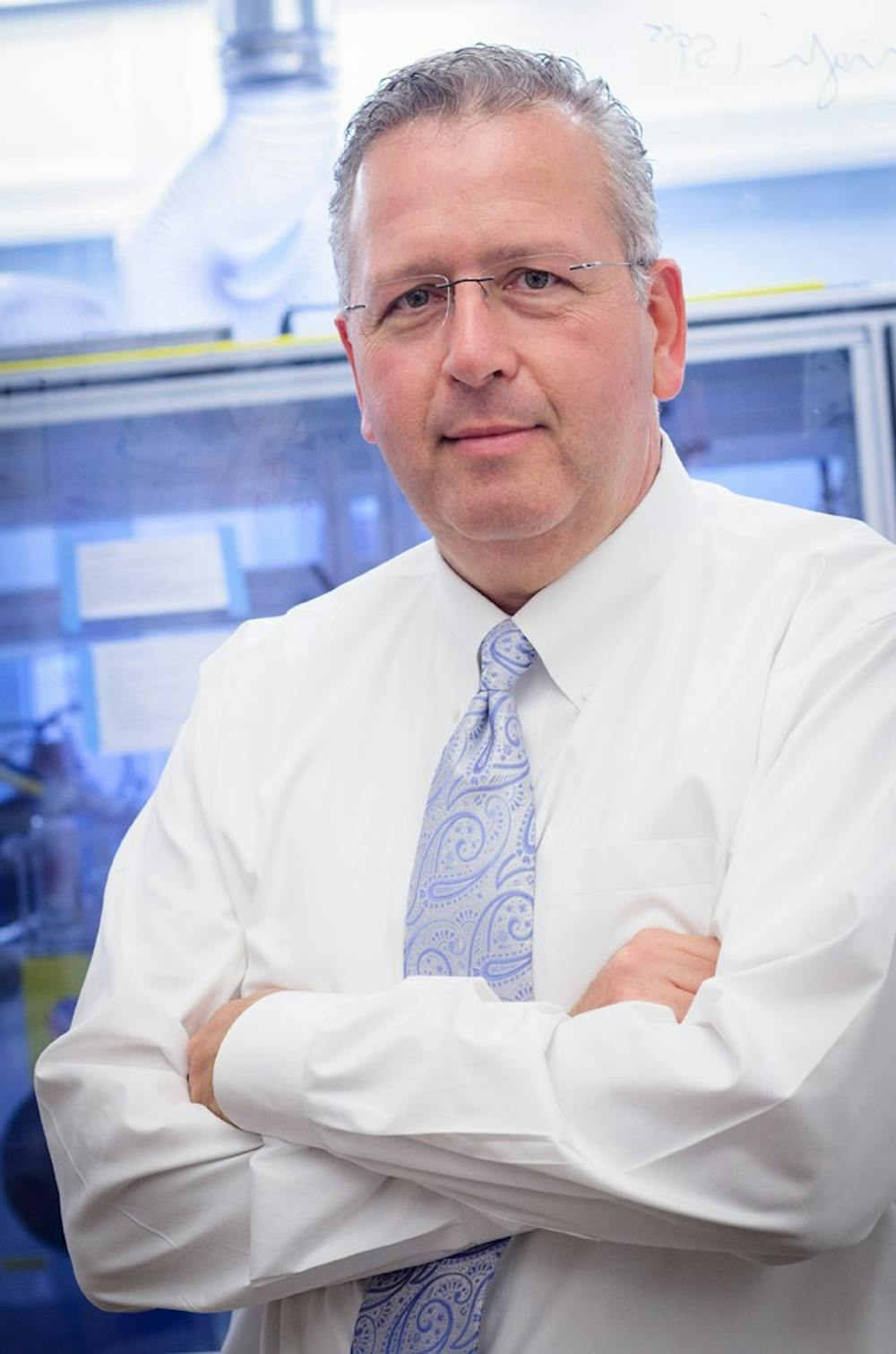Deep within the labyrinth of Caudill Laboratories, a tall man with glasses sits behind a desk in office 257.
He has two kids, married his high school sweetheart and is in the midst of planning a holiday party for his friends and colleagues.
They call him Joe — but he’s not just your average guy.
Joseph DeSimone, who will present this morning to the Board of Trustees on the importance of diversity in the lab, is perhaps the most recognizable of the University’s scientific researchers.
DeSimone, a distinguished professor of chemistry and director of the Kenan Institute of Private Enterprise, is going on his 23rd year at UNC. He has been working to promote conversation and innovation between different disciplines since he was hired at UNC in 1990, he said.
“We end up learning the most from the people we have the least in common with,” he said.
DeSimone said a lot of important ideas come from the crossroads of technology and the liberal arts.
“I think that’s our secret sauce here, in what we do,” he said.
In his most recent research, DeSimone and his researchers are bridging the gap between science and the computer industry to create better vaccines. In the lab, the team is using technology in computer chips to create particles infused with a chemotherapeutic to fight cancer.



